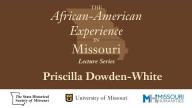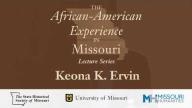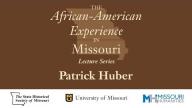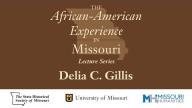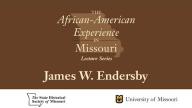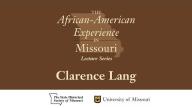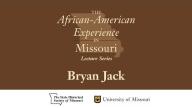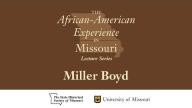Explore Missouri's past and prepare for the future through the African American Experience in Missouri lecture series. Since 2016, the African American Experience in Missouri lecture series has featured conversations with scholars, community leaders, artists, and public historians whose perspectives shed new light on the lives and legacies of African Americans across the state. The series invites audiences to consider how historical knowledge deepens our understanding of Missouri today.
Priscilla Dowden-White explores the life and legacy of St. Louis attorney and NAACP leader Margaret Bush Wilson. In her lifelong struggle to advance freedom and equality for African Americans, women, and all those who were excluded from the mainstream of society, Wilson blazed a courageous trail marked by landmark legal decisions and major civil rights advances that opened doors to equal opportunity for all. Dowden-White examines the philosophical viewpoints and experiences that shaped Wilson’s definition of justice and fairness for all.


